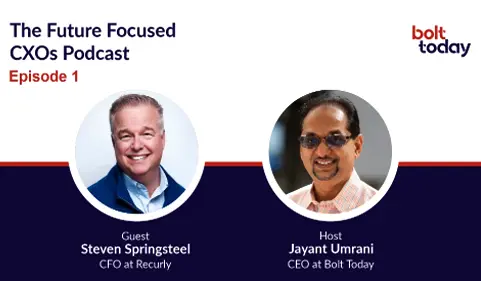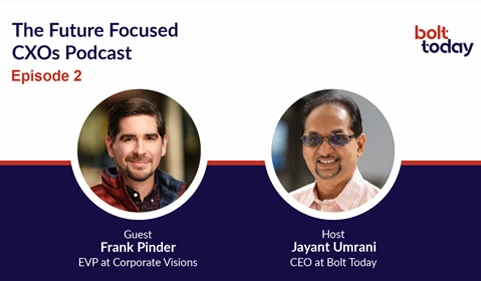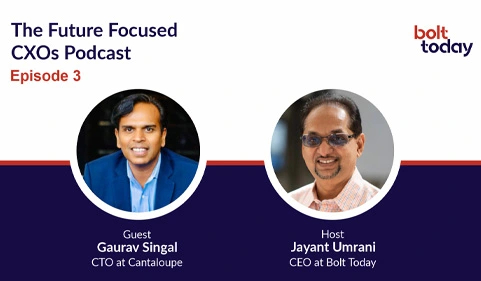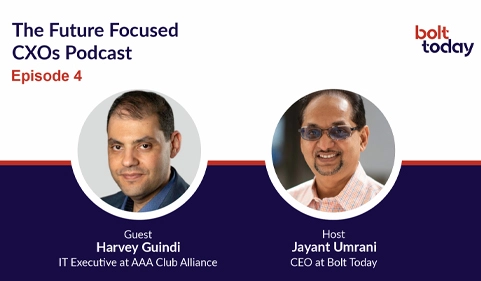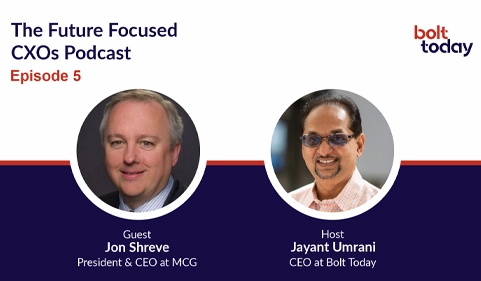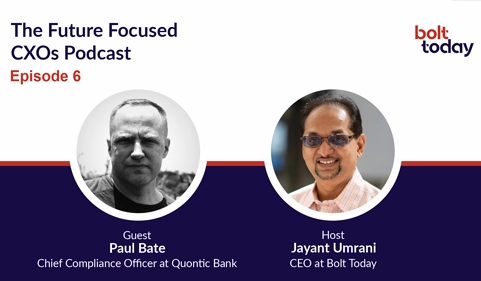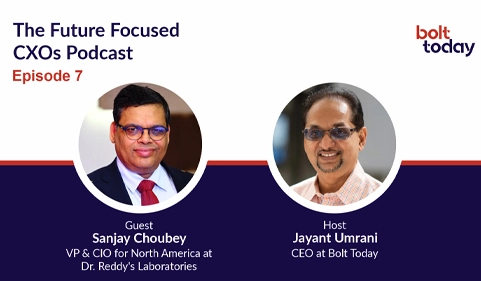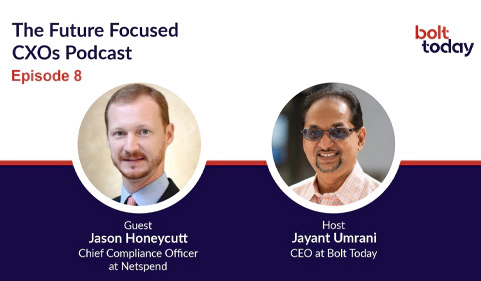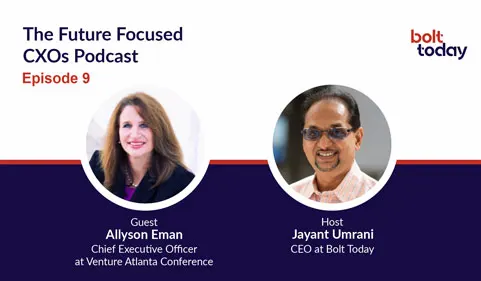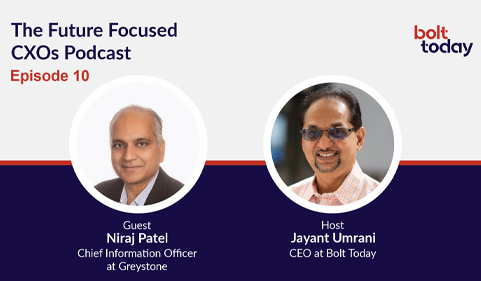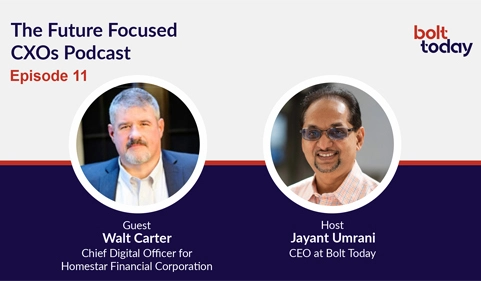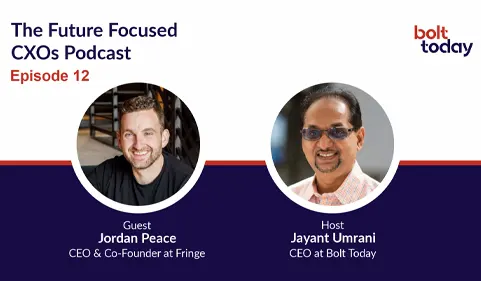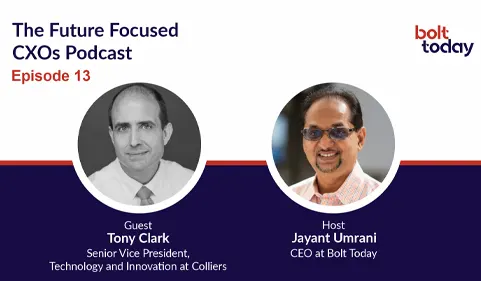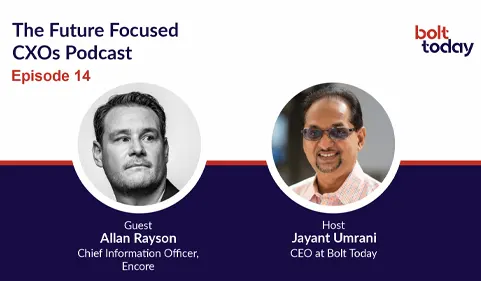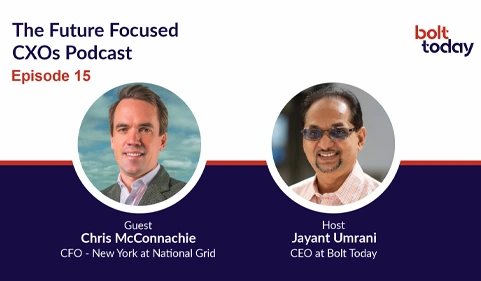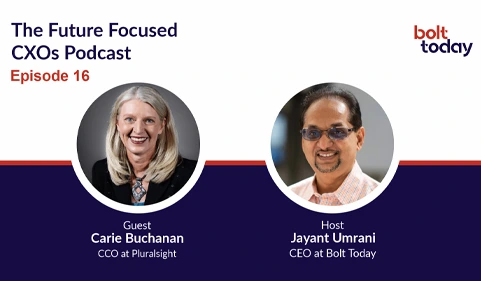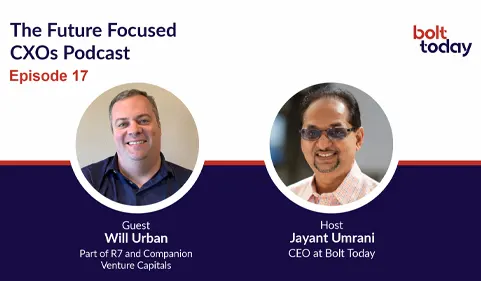Discover the winning strategies used by top CXOs to drive growth in their companies, even in the toughest of times! Join us on this must-listen podcast as we learn from the best in the business world.Discover the winning strategies used by top CXOs to drive growth in their companies, even in the toughest of times! Join us on this must-listen podcast as we learn from the best in the business world.
In this episode, we're joined by Chris McConnachie, the CFO of National Grid, a leading utility company based in New York, serving approximately 4 million electric and gas customers. With a rich background in finance, Chris brings insights from his experiences in the financial markets. He sheds light on the transformative impact of technology on customer engagement and offers invaluable career advice for those aiming to ascend to leadership positions in finance and the energy sector.
Tune in to Engaging Conversations and Insights!
Topics Discussed
0:26 - My name is Chris McConnachie, the CFO of National Grid in New York, serving approximately 4 million electric and gas customers across the state. Our operations include managing a rate base worth about $19 million. Originally from Newcastle, England, my finance career began in the financial markets before transitioning to PricewaterhouseCoopers' insolvency practice. I joined National Grid's treasury team in London in 2008, marking my entry into the utility sector. Within a year, I became deeply engaged with the industry and have been with National Grid ever since, spending the last ten years in various finance roles across the US.
1:44 - At National Grid, preparedness and timely response to storms are core aspects of our identity as a utility provider. Recognizing that our reputation hinges on our last storm response, we prioritize maintaining a reliable, safe, and affordable network.
We ensure our team is adept at crisis management, familiar with the service territory, and skilled in local operations. Beyond having a plan, we engage in resilience training and disaster management exercises across the organization, assigning storm roles to employees from various departments to ensure a collective response effort. Proactive measures, such as pre-storm crew mobilization, are crucial. Anticipating the severity of the weather allows us to have sufficient personnel ready, significantly reducing restoration times. This readiness extends beyond immediate storm response to ensuring the continuity of essential services across all societal sectors, from healthcare to commercial and residential needs, underscoring our commitment to serving the community's diverse needs.
6:48 - Balancing safety, reliability, affordability, and the pursuit of a clean energy network is a complex challenge that involves careful consideration of various factors. In developing our capital plan, we prioritize these core tenets, especially in light of our commitment to both state net zero targets and maintaining affordability for our customers. For example, undergrounding the electric network can significantly reduce the risk of fire but comes at a substantial cost, potentially five times higher than above-ground solutions. Therefore, we strive to find a balance that aligns with our strategic objectives without causing undue financial burden on our customers. This process involves not only internal decision-making but also collaboration with state regulators to ensure that our investments are prudent, targeted, and supportive of broader societal and environmental goals.
9:00 - The renewable energy sector faces key challenges in:
-
Long-Term Commitment:
Upholding net-zero goals beyond fluctuating political cycles to ensure sustained progress towards 2040 and 2050 targets. -
Developing a Skilled Workforce:
Adapting existing utility infrastructures to renewable technologies requires a workforce skilled in new energy systems, acknowledging that current networks were built over decades. -
Ensuring Affordability:
It's crucial to make the green transition affordable for all, preventing socioeconomic disparities in access to renewable technologies.
In response, National Grid focuses on:
-
Energy Efficiency:
Supporting programs that reduce reliance on the network through demand response and increased household efficiency, lessening the need for additional generation. -
Electrification Acceleration:
Building a network that supports renewable generation, including onshore and offshore wind, to facilitate electrification. -
Decarbonizing the Gas Network:
Advocating for the use of renewable natural gas (RNG) and hydrogen to leverage existing gas infrastructure while transitioning to greener alternatives, balancing electrification with green gas to manage customer costs effectively.
12:57 - Initially joining National Grid for a short stint, I quickly grew passionate about our critical role in society—not just in supporting its day-to-day functions but in driving sustainable growth and environmental progress. What excites me most is our position to influence and shape the future significantly. As one of the largest investor-owned utilities in the UK and US, National Grid has a unique responsibility and opportunity to impact societal and environmental outcomes positively. This sentiment was echoed in a meeting with utility leaders, highlighting our collective capability to define the future of the US's energy infrastructure. This ability to contribute to a sustainable future, beyond mere financial management, is profoundly fulfilling and motivates me to drive our agenda forward, making every workday worthwhile.
15:18 - National Grid is transforming customer interaction through technology, aiming not just to respond but to proactively engage customers. Our approach involves:
-
Leveraging Technology for Energy Efficiency:
By utilizing data from meters, we provide customers with real-time insights into their energy usage, helping them adjust behaviors to reduce consumption and better understand their usage patterns. -
Frontline Communication:
Ensuring that our frontline workers, who are often the direct point of contact with customers during service work or disruptions, are well-informed to address customer queries effectively. This interaction is crucial for maintaining a positive customer experience. -
Transparency in Billing:
By clearly communicating the value customers receive for their payments, we aim to enhance customer satisfaction and perception of value. This clarity helps justify the costs reflected in their bills and fosters trust in National Grid.
These strategies are part of our broader commitment to keeping the customer at the forefront of our operations, ensuring that every touchpoint—from call centers to field operations—reflects our dedication to service excellence and sustainability.
19:04 - National Grid operates uniquely in that our financial model doesn't depend on customer consumption levels but rather on the infrastructure investments we make to facilitate energy delivery. Despite not profiting from energy generation, we play a critical role in ensuring customers have access to and visibility of their energy sources. This responsibility includes providing options for renewable energy sources to meet customer demands for sustainable options.
Our approach emphasizes transparency and choice, allowing customers to understand and select their energy sources, much like choosing a flight based on carbon footprint considerations. Through digital platforms and communication, we aim to offer customers the knowledge to make informed decisions about their energy use, including the timing and source of their consumption, to align with their sustainability values. This focus on informed choice and transparency is key to adapting our services to meet evolving customer expectations and contribute to a more sustainable future, reflected in our financial and operational strategies.
22:39 - Reflecting on my path and experiences, my advice encompasses several key points:
-
Explore Broadly:
Don't limit yourself to your assigned role. Seize opportunities to engage with different aspects of your organization and understand its various functions. -
Learn Continuously:
Embrace every chance for learning, recognizing that the pace of acquiring knowledge should match or exceed the passage of time in your career. -
Build Your Network:
Cultivate a trustworthy network for support and advice, which will be invaluable over your career. -
Focus on Depth:
Rather than rushing for titles, prioritize gaining deep knowledge and expertise in your field. Success and progression will follow naturally if you're skilled and passionate.

